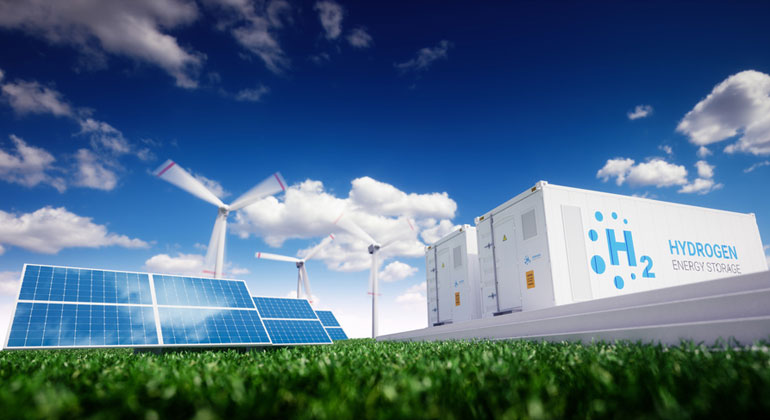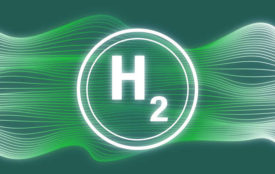Production Costs of Carbon-Free Hydrogen Significantly Lower Than Previously Assumed
In the search for alternatives to carbon-intensive fossil fuels, hydrogen has considerable potential. The gas provides an energy platform for many applications, including fuel for transportation, feedstock in chemical industries, and energy storage for power generation.
While hydrogen can be obtained through multiple processes, its production from renewable electricity via a power-to-gas process bears the advantage of the hydrogen being free from carbon dioxide emissions. Until recently, such electrolytic production of hydrogen had been regarded as too expensive.
At the conference in Nuremberg, a number of renowned participants from the fields of industry, academia and politics came together to discuss the potential of hydrogen and the recent decline in costs of alternative fuels. Amongst the speakers was Hubert Aiwanger, Bavarian State Minister of Economic Affairs, Regional Development and Energy. He reported that the Bavarian government is looking to support alternative drivetrains, including hydrogen fuel cells, and plans to massively expand the network of hydrogen fuel stations.
The conference opened with talks from Prof. Stefan Reichelstein from the University of Mannheim and Veronika Grimm, professor of Economics at the University of Erlangen-Nürnberg. Stefan Reichelstein explained how hydrogen can be produced free from carbon dioxide and still be economically viable. By using vertically integrated systems where wind or solar plants are combined with modern power-to-gas systems, it is possible to produce carbon-free hydrogen at a far lower cost than previously believed. According to the energy expert, hydrogen thus has the potential to become a vital source of energy in the efforts to phase out fossil fuels. “Our findings confirm the prediction that the production and application of hydrogen will develop just as rapidly in the next decade as was the case with wind and solar energy in the nineties,” Reichelstein said.
Further speakers included British author Chris Goodall, an investor in the field of renewable energy, who outlined parts of his upcoming book on renewable energies and hydrogen. Prof. Tim Hosenfeldt, Senior Vice President for Innovation and Central Technology at Schaeffler AG, emphasized the need for the German industry to make swift progress and set international standards.
Dr. Gunther Glenk, assistant professor at MISES, presented his work on the „Economics of Reversible Fuel Cells“. Such technology can frequently switch between the generation of electricity from hydrogen and the generation of hydrogen from electricity. While power generation from hydrogen has so far been regarded as too expensive, Dr. Glenk showed that reversible fuel cells could provide electricity at competitive prices. Reversible facilities could then, for instance, generate power during periods when the intermittent generation at wind and solar installations fall short to cover demand.
Read more about the conference on the MISES website, LinkedIn and Facebook and more: www.uni-mannheim.de/mises.








